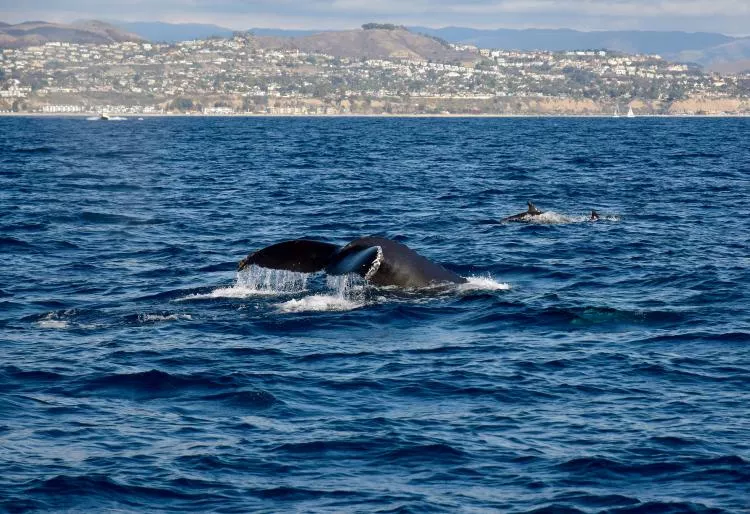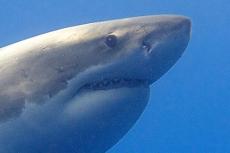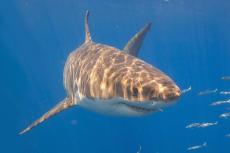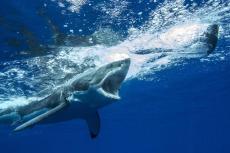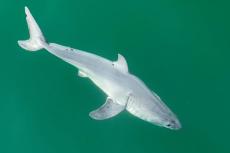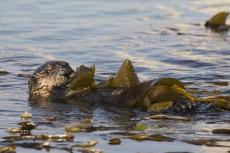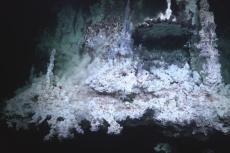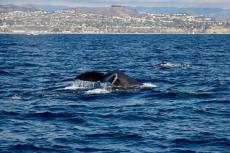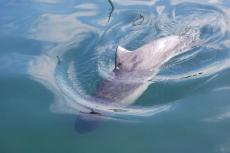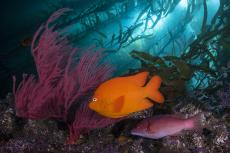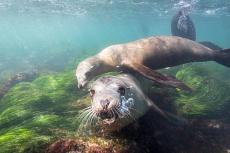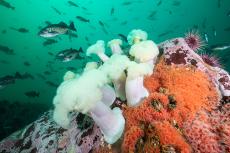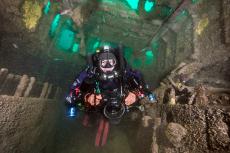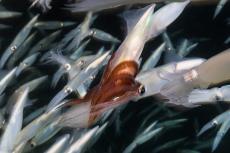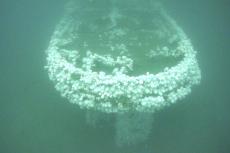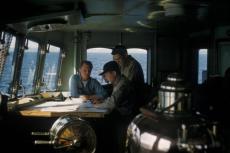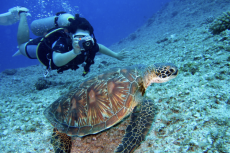Business rivals worked together to make Dana Point a Whale Heritage Site
Two competing whale-watching companies. One common goal. And the first Whale Heritage Site in the Americas.
In late January 2021, the World Cetacean Alliance (WCA) named Dana Point, California as a Whale Heritage Site, the first such site in the Americas.
The reasons were obvious: As one of the world's top whale-watching destinations, it hosts a variety of whales all year round, including the blue whale. It has more dolphins per square mile than anywhere in the world. Dana Point also has a small non-commercial harbor, community support, and undertaken public outreach and education, advocacy and research efforts.
Although the location received the award due to its inherent merits with regard to cetaceans, this might not have come about if not for the efforts of the owners of two competing whale-watching companies at Dana Point.
Rivals with a common goal
Donna Kalez is the Co-President of Dana Wharf Sportfishing & Whale Watching, while Gisele Anderson is the Vice President at Capt Dave's Dana Point Dolphin & Whale Watching Safari.
They had met each other at an event and hit it off. They soon realised that despite being from rival companies, they shared a common goal in wanting to promote Dana Point as a premiere dolphin and whale-watching destination.
Thus, they worked together to achieve this, insofar as to even travel together to different hot spots around the world to see dolphins and whales. On such trips, they saw the same things again and again.
"We would go to those hot spots and then I would think […] this is not as great as what we have. [...] For instance, you can go to some destinations, and they’ll have whales, but only seasonally. So you can only go for a short period of time. Or, they’ll have whales, but the weather precludes you from being able to go any time of year," said Anderson, in an interview with KCRW.
In other instances, the places did not have the numbers: "They’ll have dolphins, for instance, they’ll be excited about a pod of dolphins that’s about fifty to a hundred strong, and for us, our average-size pod is several hundred, and we see megapods of a thousand or more on a weekly basis. And we see pods as big as 10,000..." she added.
Recognition
Together, Anderson and Kalez progressively strived towards their mutual goal. And in 2019, working with a lawyer, they managed to get Dana Point trademarked as "The Dolphin and Whale Watching Capital of the World."
Then in January 2021 came the WCA's recognition of Dana Point as a Whale Heritage Site.
Speaking with Orange Coast Magazine, she said, "We have to up our game and increase education, public involvement. We really are a poster child for the program. They loved the fact that millions of kids come through the Ocean Institute. They were really excited about our Festival of Whales. But this is an ongoing process."
Kalez added, "When my dad started this, it was his dream that everyone would know that the California gray whale travels through here November through May. It makes me very proud that that’s something we’ve accomplished. That we now have the credibility of the world."
Ben Williamson, US programs director for World Animal Protection, talking about the cetaceans at Dana Point in a USA Today article, said:
"They're not forced for many trips, there's no cheesy music being piped in, there's no dancing, there's no reward of thawed frozen fish. It's just dolphins and whales being themselves in their natural habitats where they belong."
Fact file
Whale Heritage Sites are a global accreditation scheme developed by the World Cetacean Alliance and supported by World Animal Protection, that recognises outstanding destinations that offer and celebrate responsible and sustainable wild whale and dolphin watching.
There are currently four Whale Heritage Sites today:
- Hervey Bay, Australia
- The Bluff, South Africa
- Tenerife-La Gomera Marine Area, Spain
- Dana Point, USA


